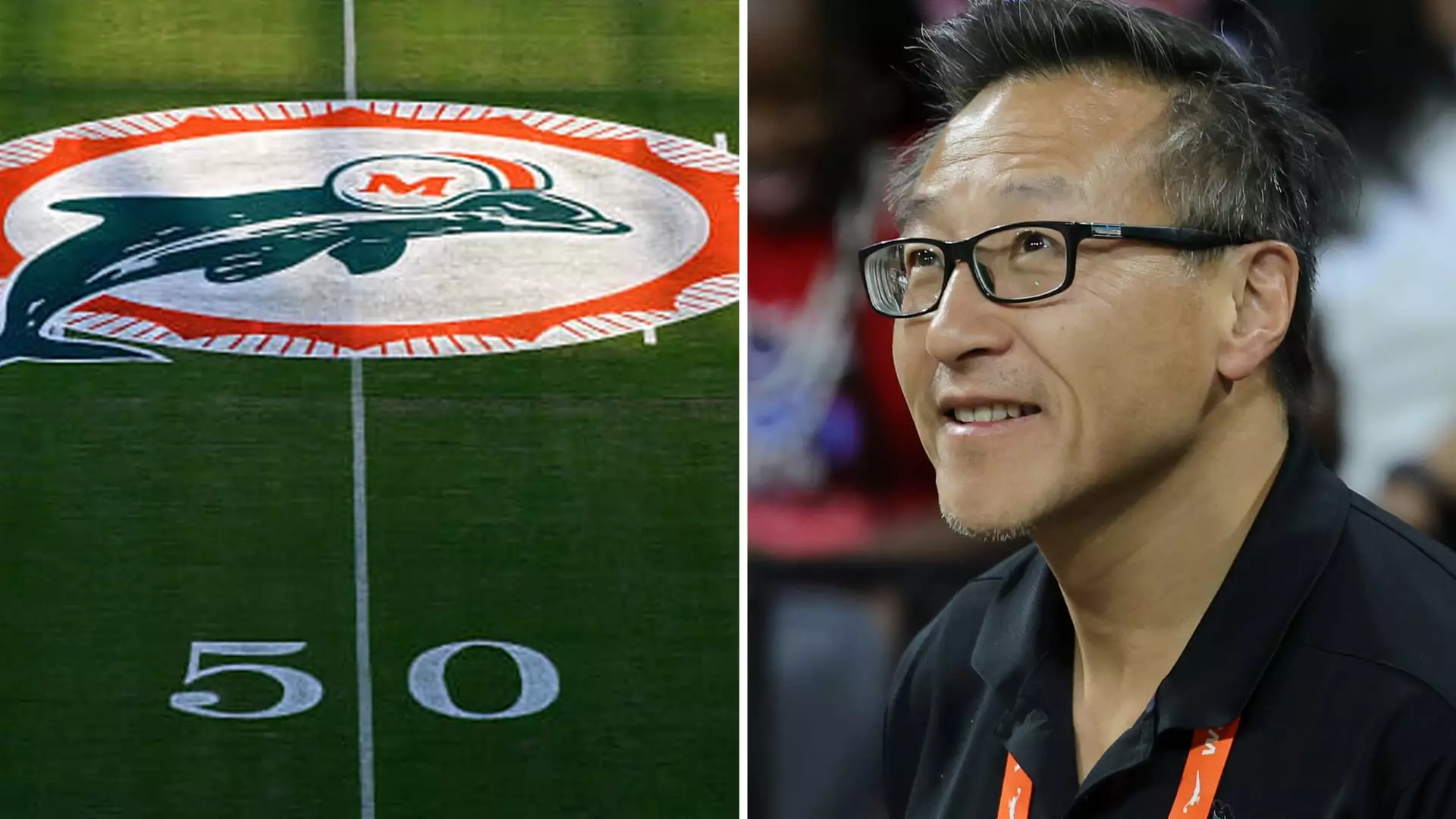In a significant development in the world of professional sports, the Miami Dolphins are reportedly in advanced discussions to sell a minority stake in the team to Ares Management, a private equity firm, and billionaire Joe Tsai, known for his ownership of the Brooklyn Nets. This unfolding narrative reflects an evolving trend within the National Football League (NFL), where team owners are increasingly seeking diversified investments across various sports franchises and related ventures. This article delves into the implications of this investment strategy, the potential financial impact on the franchise, and the broader context of the NFL’s changing landscape.
The discussions surrounding the potential sale of a 10% stake to Ares Management, alongside a proposed 3% to Tsai, place the overall valuation of the Dolphins’ assets, which include Hard Rock Stadium and the Miami Grand Prix, at around $8.1 billion. This figure positions the Dolphins as one of the more valuable franchises within the league. However, a controlling interest in these assets would have surpassed $10 billion, underscoring the weight of ownership stakes in this lucrative industry. The fact that the Dolphins are valued at an estimated $7.1 billion—excluding the stadium—adds a layered complexity to the negotiation process, as team owners assess both the performance of their franchises and the potential growth opportunities that ownership of related venues could yield.
The anticipated stake acquisition marks a pivotal moment, as it would symbolize the first private equity investment in the NFL since the league revised its financing rules in August. Historically, the league has been resistant to allowing outside financial entities to hold stakes in its franchises; however, the shifting landscape requires adaptation. With a growing need to attract affluent investors and navigate the rising valuations of teams, the NFL’s decision showcases a pragmatic approach to ownership in a competitive market. Ares Management, with $450 billion in managed assets, stands as a formidable player approved for this endeavor, indicating trust in their ability to contribute positively to the league and its franchises.
Stephen Ross, the current owner of the Dolphins, has an extensive vision for his investment in both the team and the broader regional economy. Acquiring the Dolphins for $1.1 billion in 2009, he has demonstrated a willingness to evolve his business strategies, focusing not only on the team’s on-field success but also on maximizing revenue streams via Hard Rock Stadium. In recent years, events like the Miami Grand Prix and the prestigious Miami Open have bolstered his revenue generation strategies. Reports suggest that Ross intends to reinvest the proceeds from the minority stake sale into South Florida real estate, potentially enhancing his influence and footprint in the region.
With the Miami Dolphins’ potential sale of ownership stakes, there are tangible implications for the wider sports ecosystem. Tsai, in particular, exemplifies the contemporary sports owner who is expanding their portfolio across different leagues and formats, strengthening his control over the multi-faceted sports ventures that he adheres to. His existing ownership of the Brooklyn Nets and various lacrosse franchises represents a model where diversified investments can yield profitable synergies, both in terms of brand visibility and operational potential.
The NFL’s recent policy change may indeed encourage more private investors to enter the fold, following a path similar to that of Tsai. As financial giants invest in franchises, we could witness a shift in how teams are managed and operated, opening the door for innovative practices that might enhance fan engagement, marketing strategies, and overall profitability.
The ongoing negotiations surrounding the Miami Dolphins’ minority stake sale signify much more than just a financial transaction; they indicate a pivotal shift in sports ownership dynamics that could reshape not just the NFL but professional sports as a whole. The adaptations being made by owners like Stephen Ross illustrate a broader movement towards diversification and innovation in sports management. As the league embraces outside investments, the impact of these changes could reverberate across franchises, leading to an era of heightened competition, creativity, and fiscal strategy designed to cater to an ever-growing market of sports fans and investors.

Leave a Reply